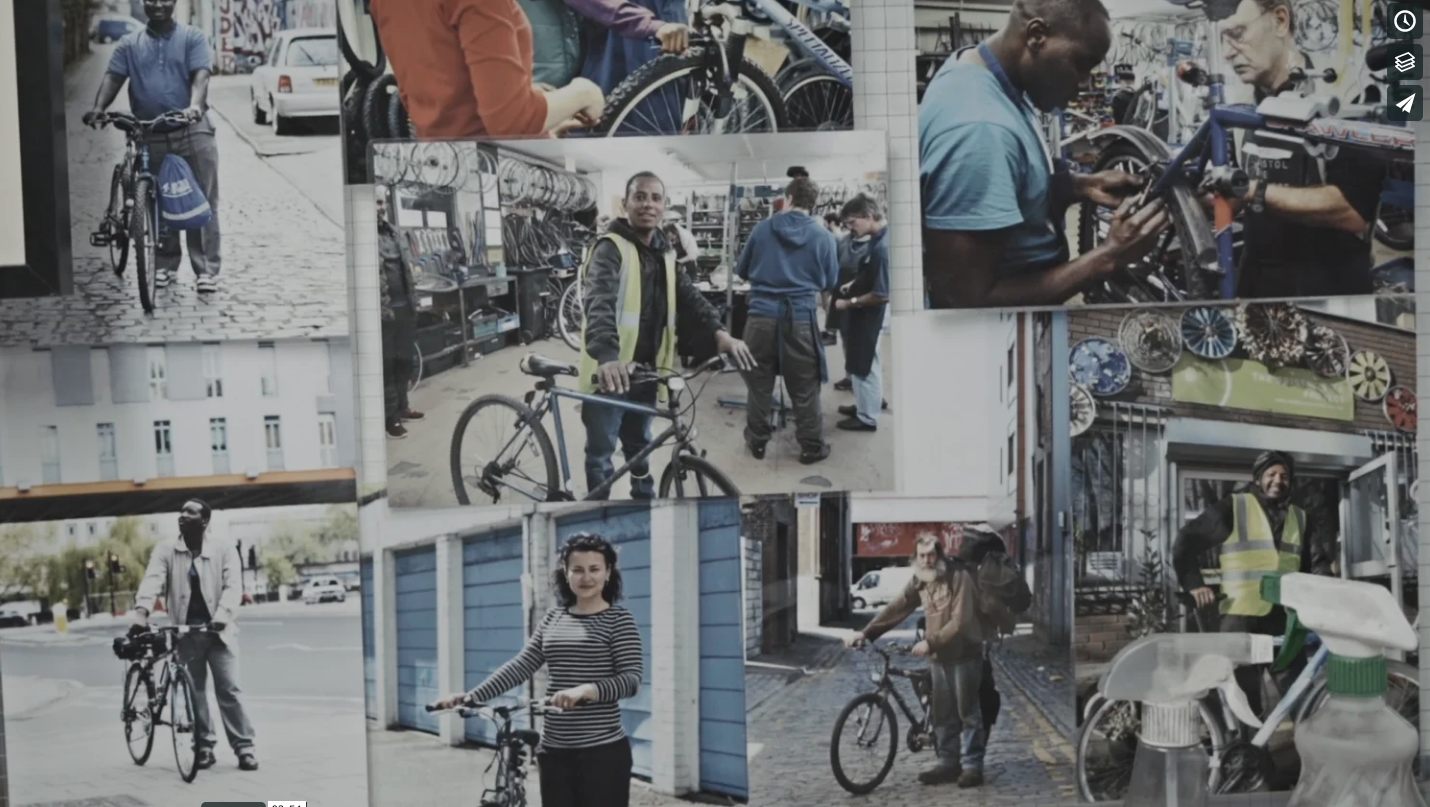This time six weeks ago the messages had started piling in on our staff Signal group… ‘we’re wondering if we need to step up our response to coronavirus..??’ Within 24 hours we’d cancelled all community workshops, completely overhauled shop operations and begun the difficult process of furloughing staff.
It’s amazing how quickly we can adapt when confronted with emergencies. Although we’re now closed to the general public and working with a much smaller team, the passion and creativity of our staff and volunteers has enabled us to manoeuvre quickly to find new ways to support our community. We’re still selling and repairing bikes for key workers, and continuing to support people who relied on our community workshops through bike repairs and an online/phone support network.
Through years rehoming bikes with people and teaching maintenance, we know just how important access to a bicycle can be for our mental and physical wellbeing – not to mention getting around in an affordable, sustainable way. These needs don’t go away in a public health crisis; if anything, they become more acute. The same people who are most excluded from our society – the homeless, people seeking asylum, the long-term unemployed, people with physical disabilities, with mental health illnesses, people suffering with addictions, or those in abusive relationships – are the people who suffer disproportionately in a public health crisis like this.
Indeed, the crises of inequality that have been exacerbated since the Covid-19 outbreak are multiple and far reaching. People seeking asylum who are living off an allowance of only £37.75 per week for everything cannot afford phone credit or data, meaning they can’t access the new online support networks. The street homeless may have been granted access to hostels, but these places are a hotbed for contagion putting their lives at risk. And recent reports have shown that deaths associated with domestic violence have more than doubled since the Covid outbreak. These are just some of the harrowing truths that are unfolding amidst this public health crisis.
The virus itself may not discriminate, but decades of austerity most certainly does. Indeed, it is years of successive governments pursuing policies which put profit before people which has left our welfare system wholly unequipped to support those hardest hit by the impact of the Covid-19 outbreak.
So how do community organisations like BBP respond? How do we continue to act in solidarity with the most vulnerable in our community at a time like this?
This is a question we’ve found hard to answer. Yes, we’ve found ways to support some to keep their bikes on the road – key workers who need their bikes to get around, and others who rely on their bikes for essential journeys and physical or mental wellbeing. We’ve also managed to reach people who we know are socially isolated and for whom coming to the workshop was a vital part of their sense of community and purpose. We’re calling them for a chat about bikes, sharing ride tips and maintenance tips, and sharing a moan about missing the workshop. All these things are crucial – and we are determined to keep doing this for as long as we can.
But our work is very hands-on, and it can sometimes feel like there is simply no substitute for the actual presence of people in the workshop. Many people don’t have English as their first language, and we’ve realised how important the physical demonstration of bikes was to conversation and understanding. Others can’t access the internet, or a phone – or they can’t read and write. In a world where virtually everything has gone online, connecting with people can feel impossible.
That won’t stop us from trying – we will throw our all into finding new and creative ways to reach as many people as we possibly can, workshop or none. But this is why we also have to start thinking about the future and the kind of pressure we need to put on society at large to build back better.
Across the third sector and grassroots organisations, we’ve seen a rapid shift to move support online, through phone networks and delivery services. And the response from local communities in the form of mutual aid groups has been phenomenal. It demonstrates the incredible capacity of communities to self-organise, build solidarity and support the most vulnerable people in our society.
Once this is over, we cannot go back to the status quo. Our government has been exposed once again for the oppressive and unequal system it operates – all the while ordinary people in our communities are demonstrating what collective care, solidarity and mutual aid looks like. This is where we should be looking for the answers for how to build after the crisis. BBP looks forward to being part of that conversation.

